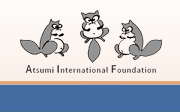-
SGRA Sustainable Shared Growth Seminar 29 ReportIn Search of Community CurrenciesPosted: October 21, 2021In collaboration with College of Public Affairs and Development of the University of the Philippines Los BañosSeminar Report (Lite Version)Seminar Report (HD Version)
-
SGRA Sustainable Shared Growth Seminar 28 ReportTowards Sustainable Shared Growth Policy BriefsMay 31, 2021In collaboration with College of Public Affairs and Development of the University of the Philippines Los BañosSeminar Report (Lite Version) Seminar Report (HD Version)






